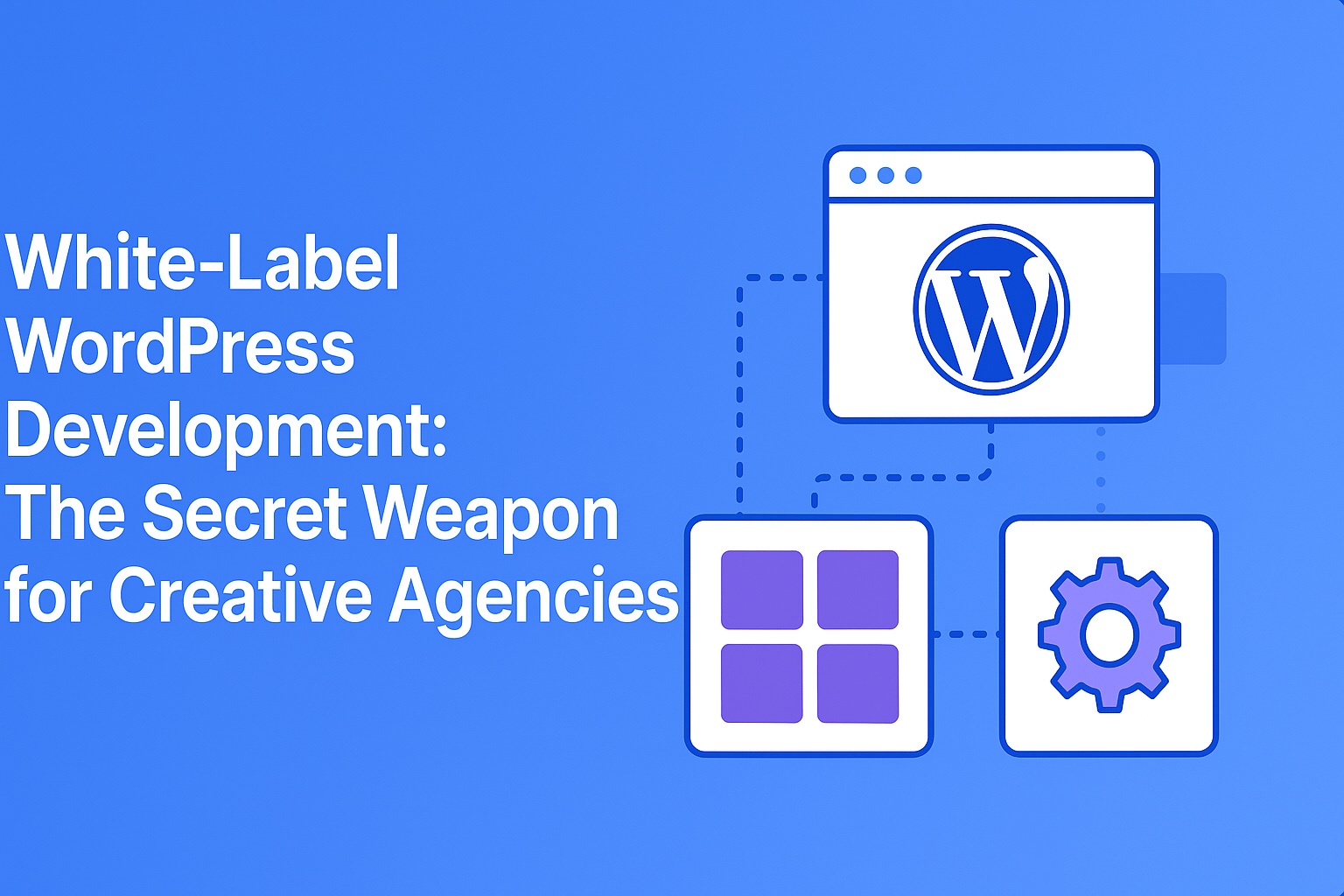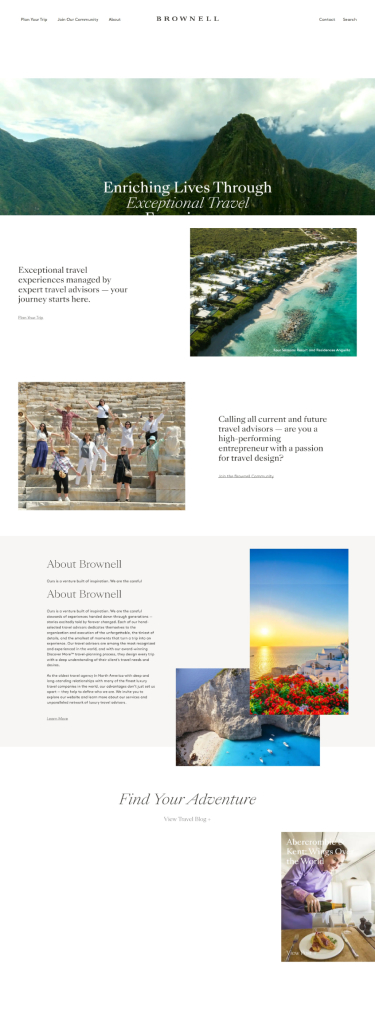Creative agencies thrive on ideas, branding, and client relationships. Yet, many hit a wall when it comes to executing complex WordPress projects. Hiring in-house developers can be costly and slow, while freelancers pose reliability risks. That’s where white-label WordPress development steps in — a solution that allows agencies to deliver high-quality projects under their own brand, backed by a trusted technical partner like DeveloPress.
In this article, we’ll unpack what white-label development means, why it’s become a go-to strategy for agencies, and how it unlocks growth opportunities without the overhead of building a full development team. We’ll also share a case study example inspired by a real collaboration to demonstrate the model in action.
Table of Contents
What Is White-Label WordPress Development?
White-label development is when a technical partner handles the coding and technical execution of a WordPress project, while the agency presents the work as its own. Clients interact solely with the agency, never knowing there’s a partner behind the scenes. This ensures the agency retains full control of the client relationship, brand, and strategic direction.
For example, a design-first creative agency may build brand concepts and user journeys but lack developers skilled in custom WordPress block development. With white-label support, the agency can still deliver a complete solution without turning away business.
Why Agencies Choose White-Label Partners
Agencies adopt white-label partnerships for a mix of practical and strategic reasons. Here are the top benefits:
- No client loss risk: Since the agency remains the sole point of contact, clients never “see” the technical partner. Loyalty stays with the agency.
- Scalable capacity: Handle larger or multiple projects without hiring full-time staff.
- Complex project readiness: Deliver multilingual websites, advanced e-commerce, or custom integrations without stretching internal resources.
- Predictable costs: Agencies avoid the HR overhead, recruitment, and long-term salaries of in-house developers.
- Access to senior talent: Tap into WordPress specialists, including experts familiar with WordPress VIP, enterprise hosting, and security standards.
In other words, outsourcing via a WordPress partner means your agency never has to say no to a client brief due to technical gaps.
Use Cases: When White-Label WordPress Shines
While white-label support can work for almost any project, there are certain scenarios where it makes the biggest impact:
- Multilingual websites: Implementing WPML or Polylang requires deep technical knowledge to avoid SEO or UX pitfalls.
- Custom Gutenberg blocks: Building reusable, brand-specific blocks gives clients more flexibility, but requires expert block development.
- E-commerce: Complex WooCommerce projects with integrations (payments, ERP, fulfillment) demand senior-level developers.
- Enterprise builds: Agencies serving high-traffic sites may need WordPress VIP partners for security and compliance — white-label partners with that expertise are invaluable.
- Website migrations: Moving from platforms like Wix or Squarespace to WordPress is time-intensive; outsourcing avoids bottlenecks.
Want to see how this works in practice? Let’s look at a real-world inspired example.
Case Study: BS LLC Collaboration
BS LLC, a boutique creative agency, focuses on brand strategy and design. When a corporate client requested a multilingual WordPress site with custom Gutenberg blocks, BS LLC partnered with DeveloPress under a white-label model. Here’s what happened:
- Challenge: The project required technical skills the agency didn’t have in-house, including multilingual support and scalable block development.
- Solution: DeveloPress handled all technical execution — architecture, coding, QA, and deployment — while BS LLC managed client communication and design direction.
- Result: The client received a performant, SEO-friendly website under the BS LLC brand, never knowing an external team was involved.
This collaboration allowed BS LLC to keep the client relationship strong, expand its service offering, and take on a project they would otherwise have declined. That’s the true power of white-label delivery.
How White-Label Partnerships Compare to In-House Hiring
| Factor | In-House Hiring | White-Label Partner |
|---|---|---|
| Onboarding Speed | Weeks or months | Immediate start possible |
| Costs | Salaries, benefits, HR | Project-based or retainer |
| Expertise Range | Limited to hires | Access to senior developers (WordPress VIP, WooCommerce, security) |
| Scalability | Requires new hires | Scale up or down as needed |
| Client Relationship | Direct | Agency retains 100% of client relationship |
For most creative agencies, the flexibility of a white-label WordPress partner outweighs the overhead of in-house development.
Best Practices for Choosing a White-Label WordPress Partner
- Check transparency: Ensure the partner has clear processes and documentation.
- Look for specialization: Choose teams with proven expertise in WordPress, especially enterprise projects.
- Verify security knowledge: Review how they handle updates, vulnerabilities, and compliance. Reputable sources like Wordfence and Patchstack highlight why proactive security matters.
- Test communication: White-label is built on trust — make sure they can align with your workflows and timelines.
By vetting carefully, you ensure your agency’s brand reputation remains intact while scaling delivery capacity.
Conclusion: Scaling Without Losing Focus
White-label WordPress development empowers creative agencies to grow without compromising quality or overextending their teams. Whether tackling multilingual websites, advanced WooCommerce stores, or enterprise-grade builds, a WordPress partner makes it possible to say “yes” to more opportunities.
Instead of hiring full-time developers, see how DeveloPress supports agencies with white-label delivery. We help you expand services, protect your client relationships, and deliver outstanding WordPress solutions under your brand.
FAQ.
Don’t see your question? Drop us a message. We’re always happy to help.
What does white-label WordPress development mean?
It means a technical partner handles coding and delivery while the agency presents the work under its own brand. The client never knows a partner was involved.
Will clients know about the white-label partner?
No. All communication and deliverables come through the agency, protecting your client relationship.
When should an agency use a white-label WordPress partner?
Common use cases include multilingual websites, WooCommerce stores, custom block development, and enterprise hosting projects where specialist skills are required.
Is white-label development cost-effective?
Yes. Instead of paying salaries and benefits, agencies pay for services only when needed, making it easier to scale profitably.
How do I choose the right WordPress partner?
Look for proven experience, transparent processes, strong security knowledge, and positive client testimonials. You can also start with a small project to test collaboration.







